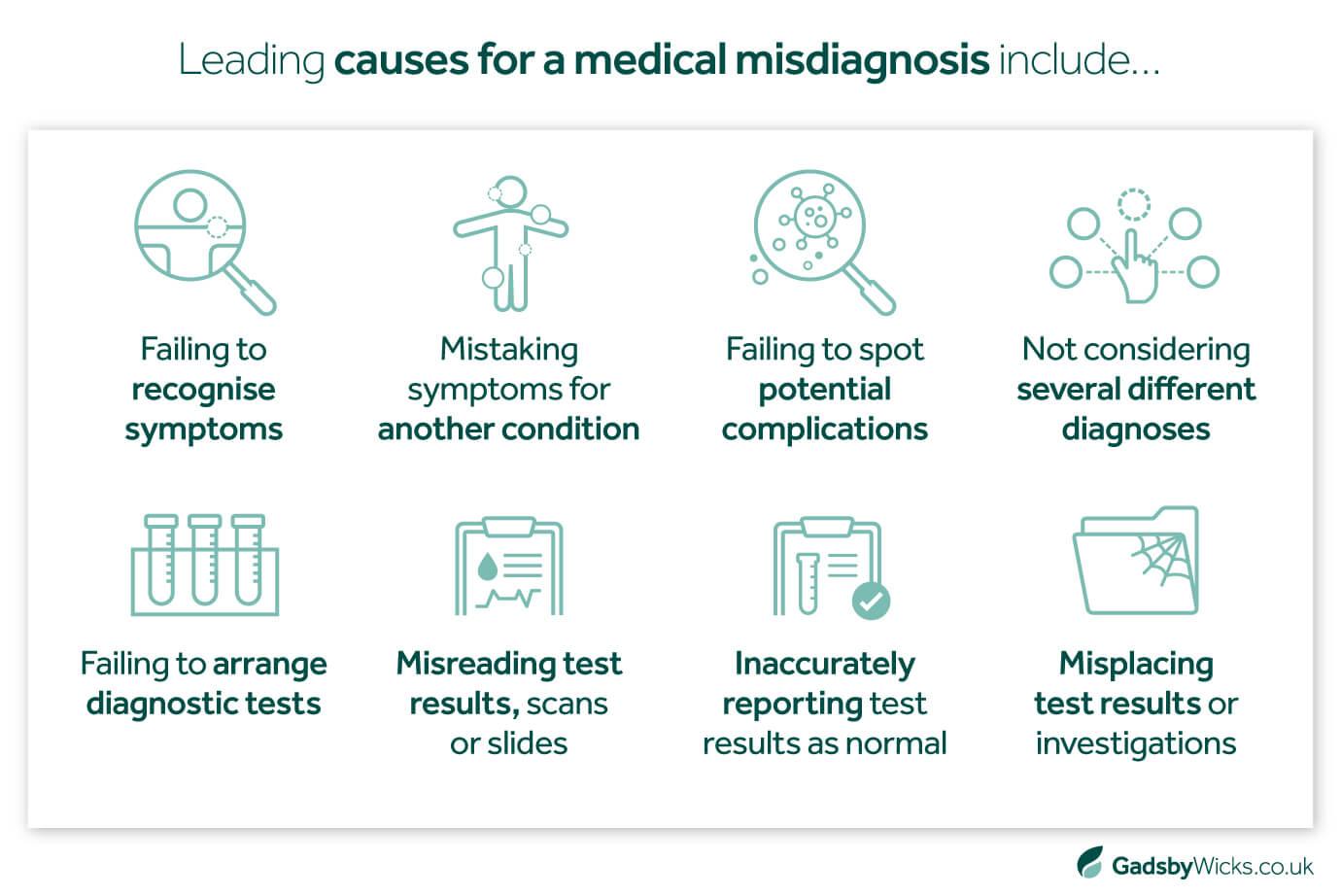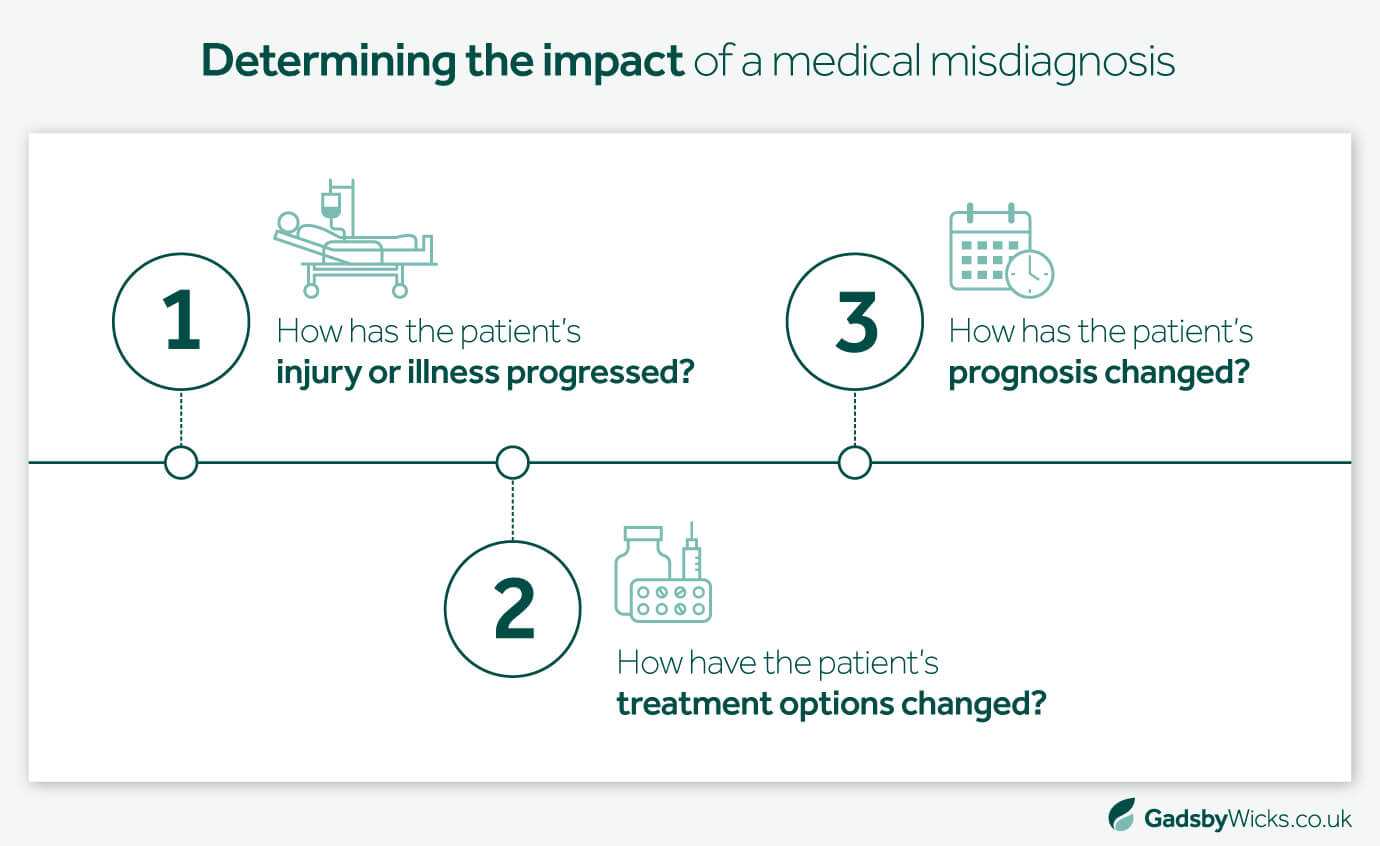- Home >
- Misdiagnosis Claims
We trust healthcare professionals to take reasonable steps to identify and manage our welfare. But when symptoms are overlooked or errors are made, the wrong diagnosis can have serious consequences on your health.
If you or someone you love was misdiagnosed, our solicitors are ready to fight for your right to justice. For over 30 years, we have secured settlements worth up to £400,000 in compensation for clients affected by delayed or incorrect diagnosis in Essex and East Anglia, providing the security you need to move forward from your experience.
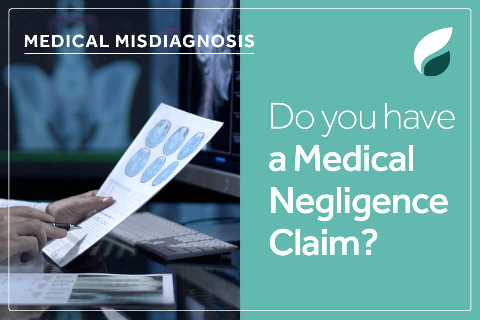
Do you have a misdiagnosis claim?
The human body is complex, and it is unreasonable to expect healthcare professionals to get diagnoses right every time. But when negligent actions or inactions cause a preventable misdiagnosis, the impact can be life-altering.
From misplaced test results to misread scans – if you suffered due to a medical misdiagnosis, we have the experience and expertise needed to support your claim from start to finish, so you can understand what went wrong and secure your financial future.

The specialist misdiagnosis claims solicitors for Essex & East Anglia
Since 1993 we have fought for people affected by misdiagnosis across Essex and East Anglia, achieving settlements in excess of £400,000 for our clients.
By leaving no stone unturned when investigating your claim, our misdiagnosis claims solicitors get the answers you need and settle 96% of cases outside of court. With a ‘no win, no fee’ approach, we ensure you can pursue a settlement with zero financial risk, protecting your long-term quality of life.
Misdiagnosis Claims Payouts & Compensation Guide
No two misdiagnosis claims are the same – the compensation you may receive depends on several factors, from the type of error made, how long your condition went untreated, and the long-term effects on your health and day-to-day life.
At Gadsby Wicks, our experienced misdiagnosis claim solicitors in Essex have achieved settlements from £25,000 for less severe injuries, to over £400,000 for cases with serious, lasting impacts. With decades of expertise and dedicated focus, we work tirelessly to help every client secure the compensation and justice they need to move on with their lives.
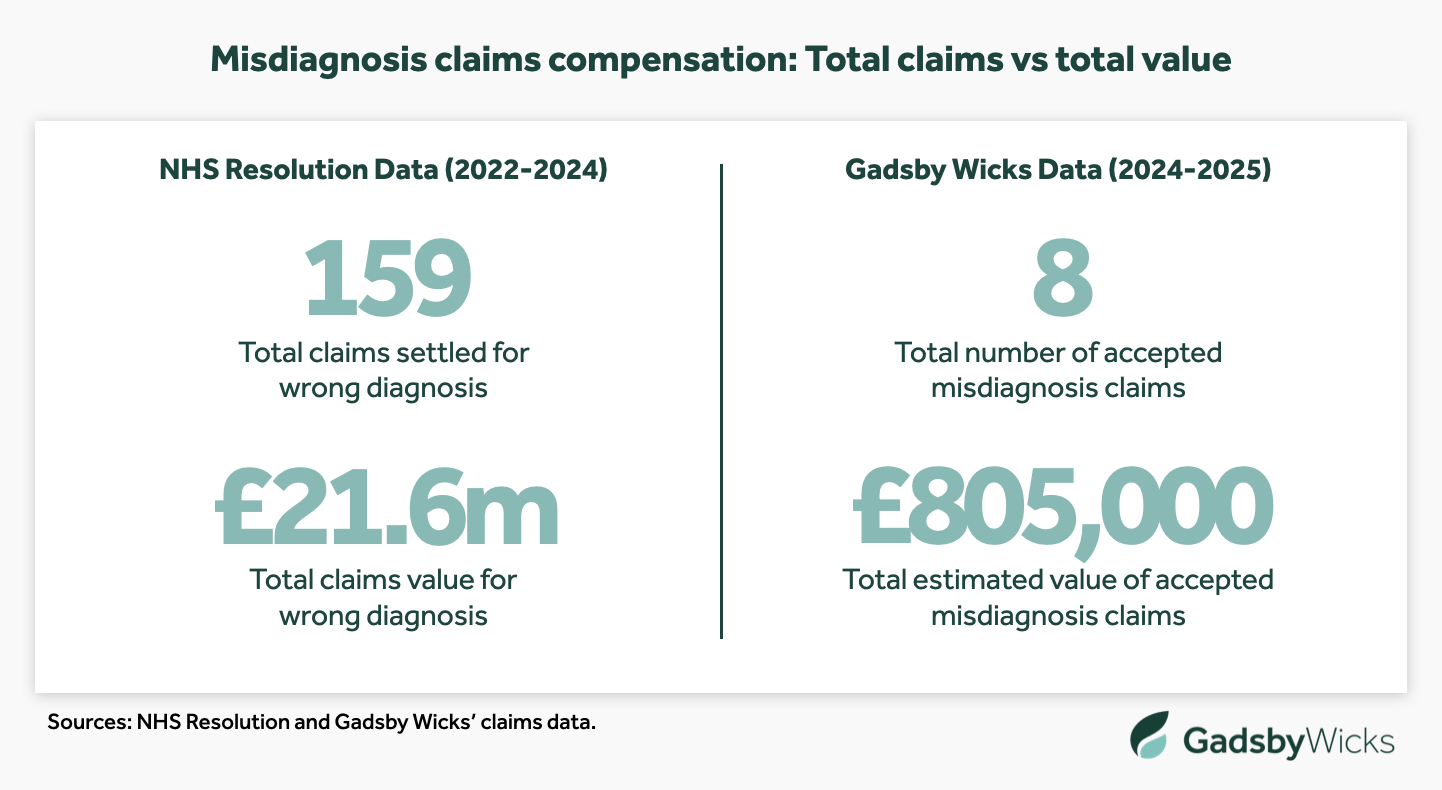
Understanding misdiagnosis claims compensation in the UK
The latest available data from NHS Resolution (2022/2023 and 2023/2024) reveals that wrong diagnosis claims accounted for just 159 claims in this period, with over £21 million in compensation recovered.
It is worth noting that NHS Resolution does not categorise misdiagnosis as a specialty in their Annual Report & Accounts document – these numbers were obtained through a freedom of information request.
Our own data of misdiagnosis claims in Essex and East Anglia also presents this as one of the rarest forms of claim, representing just 3.3% of our total claims in 2024/2025 and 1.5% of the total estimated claims value.
Of course, there is no average misdiagnosis claim settlement, as this greatly depends on the long-term impact this has on a patient’s health, treatment and prognosis. For example, a young man recovered £6.5 million in 2008 after a misdiagnosis of ruptured tendons meant he was left wheelchair-bound.
View our National and Essex Medical Negligence Statistics post for more information.
For amounts of compensation for misdiagnosis, remember two key factors:
- Misdiagnosis claim payouts are not lottery wins. The amount of compensation awarded always reflects the immediate and long-term impact of the injuries inflicted.
- Compensation values for misdiagnosis claims are wide-ranging. In our experience, misdiagnosis claims can range from five-figure payouts to claims worth millions of pounds in the most substantial cases.
At Gadsby Wicks, our solicitors have over 30 years of experience handling misdiagnosis claims of all types and levels of complexity. Whatever your circumstances, we take the time to understand the full impact of what’s happened and work diligently to secure the compensation you deserve.
How is misdiagnosis compensation calculated?
Misdiagnosis compensation is divided into two core areas: general damages and special damages.
General damages for misdiagnosis claims
General damages cover the physical and psychological harm caused by a misdiagnosis – often referred to as compensation for your “pain, suffering, and loss of amenity.”
In these cases, we may initially refer to the Judicial College Guidelines. This offers compensation value estimates for a wide range of injuries that could occur as a result of a misdiagnosis, including (but not limited to):
- Brain injuries
- Injuries causing paralysis
- Orthopaedic injuries
- Injuries to internal organs
- Chronic pain
- Psychiatric and psychological damage
- Injuries resulting in death
We’ve compiled a collection of figures from the JCG guidelines in the table below. It’s important to note that this is not a complete list, and that these guidelines should only be seen as rough estimates – misdiagnosis claim compensation is always determined on a case-by-case basis.
Furthermore, JCG guidelines are more suited to personal injury claims. In misdiagnosis cases, patients will already be injured or unwell before their diagnosis. This means we must consider what the patient’s health and prognosis would have been if the diagnosis were correct and timely, and compare this against the actual outcome.
That’s why it is so important to seek advice from solicitors who specialise in misdiagnosis claims. We assess every case on its own merits to ensure the compensation awarded truly reflects the physical, emotional and practical impact the misdiagnosis has had on your life.
| Severity | Estimated Value Range | Notes |
|---|---|---|
| Brain injury | ||
| Very severe | £344,150 - £493,000 | Little meaningful response to environment, little language function, double incontinence and full-time nursing care. |
| Moderately severe | £267,340 - £344,150 | Seriously disability, with a substantial dependence on others and a need for constant professional care. |
| Moderate | £52,550 - £267,340 | Moderate to severe intellectual deficit and effects on sight, speech, senses, concentration and memory. |
| Less severe | £18,700 - £52,550 | Similar problems to moderate cases, but will have made a good recovery and will be able to take part in normal social life. |
| Injury involving paralysis | ||
| Tetraplegia / Quadriplegia | £396,140 - £493,000 | Full-body paralysis where the injured person is in no physical pain, but has full awareness of their disability. |
| Paraplegia | £267,340 - £346,890 | Lower-half paralysis, with damages dependent on the extent of pain, degree of independence, life expectancy and more. |
| Amputation of arms | ||
| Loss of both arms | £293,850 - £366,100 | Double-arm amputation that reduces a person with full awareness to a state of considerable helplessness. |
| Loss of one arm | £117,360 - £167,380 | Amputation of a single arm, with values depending on extent of amputation and if it's the person's dominant arm. |
| Bowel injury | ||
| Severe | Up to £224,790 | Cases involving double incontinence – total loss of bowel function and urinary function and control. |
| Moderately severe | Up to £183,190 | Total loss of natural function and dependence on colostomy (depending on age). |
| Moderate | In the region of £97,530 | Persistent faecal urgency and passive incontinence causing embarrassment or distress. |
| Less severe | £54,420 - £85,100 | Severe abdominal injury often necessitating temporary colostomy and/or restriction on diet and employment. |
| Bladder injury | ||
| Severe | Up to £224,790 | Cases involving double incontinence – total loss of bowel function and urinary function and control. |
| Moderately severe | Up to £171,680 | Complete loss of function and control. |
| Moderate | £78,080 - £97,540 | Serious impairment of control with some pain and incontinence. |
| Less severe | £28,570 - £38,210 | Where there has been almost a complete recovery but some fairly long-term interference with natural function. |
| Digestive system injury | ||
| Severe | £46,900 - £64,070 | Severe toxicosis causing serious acute pain, vomiting, diarrhoea and fever, requiring hospital admission. |
| Serious | £11,640 - £23,430 | Serious but short-lived food poisoning, diarrhoea and vomiting diminishing over two to four weeks. |
| Moderate | £4,820 - £11,640 | Food poisoning or allergic reaction causing discomfort, stomach cramps, alteration of bowel function and fatigue. |
| Female reproductive system injury | ||
| Very severe | £140,210 - £207,260 | Infertility with sexual dysfunction, severe depression and anxiety, pain and scarring. |
| Severe | £52,490 - £124,620 | Likely permanent sexual dysfunction in the case of a person with children or who is unable to have children. |
| Moderately severe | £68,440 - £87,070 | Infertility with no aggravating features and no sexual dysfunction in a young person without children. |
| Moderate | £21,920 - £44,840 | Infertility without medical complications and no sexual dysfunction where the injured person already has children. |
| Kidney injury | ||
| Severe | £206,730 - £256,780 | Serious and permanent damage to or loss of both kidneys. |
| Serious | Up to £78,080 | Where there is significant risk of future urinary tract infection or other total loss of natural kidney function. |
| Moderate | £37,550 - £54,760 | Loss of one kidney with no damage to the other |
| Injuries affecting sight | ||
| Most severe | In the region of £493,000 | Total blindness and deafness. |
| Very severe | In the region of £327,940 | Total blindness. |
| Severe | £78,040 - £219,400 | Loss of sight in one eye with reduced vision in the remaining eye, depending on extent of vision loss. |
| Moderately severe | £66,920 - £80,210 | Total loss of one eye, depending on age, psychiatric consequences and cosmetic effect. |
| Moderate | £60,130 - £66,920 | Complete loss of sight in one eye, taking account of some risk of sympathetic ophthalmia. |
| Deafness or tinnitus | ||
| Very severe | £133,810 - £171,680 | Total deafness and loss of speech, often due to deafness occurring at an early age. |
| Severe | £110,750 - £133,810 | Total deafness, with award depending on occurrence of speech deficit or tinnitus. |
| Moderately severe | £38,210 - £55,570 | Total loss of hearing in one ear, with award depending on level of tinnitus, dizziness or headaches. |
| Moderate | £8,560 - £55,570 | Partial hearing loss and/or tinnitus. |
| Impairment of taste/smell | ||
| Severe | In the region of £47,810 | Total loss of taste and smell. |
| Moderately severe | £40,150 - £47,810 | Total loss of smell and significant loss of taste. |
| Moderate | £30,500 - £40,150 | Loss of smell only. |
| Serious | £23, 430 - £30,500 | Loss of taste only. |
| Chronic pain disorders | ||
| Severe | £51,410 - £76,870 | Significant, ongoing symptoms despite treatment, adversely impacting ability to work and requiring care/assistance. |
| Moderate | £25,710 - £46,970 | Symptoms are ongoing, albeit to a lesser degree than the above and a less marked difference on daily life. |
Special damages for misdiagnosis claims
Special damages reflect the financial repercussions of a misdiagnosis – both immediate and in the long term. Examples of special damages may include:
- Medical and rehabilitation expenses, including future treatment, specialist consultations, medication and therapy programmes
- Equipment, accommodation and transport, such as medical aids, home adjustments, or specially adapted vehicles needed as a result of your condition
- Care and support costs, covering professional care or additional support required for daily living
- Loss of earnings, compensating for wages lost during recovery, as well as any future reduction in earning capacity
- Travel expenses, including journeys to and from hospitals, clinics and specialist appointments
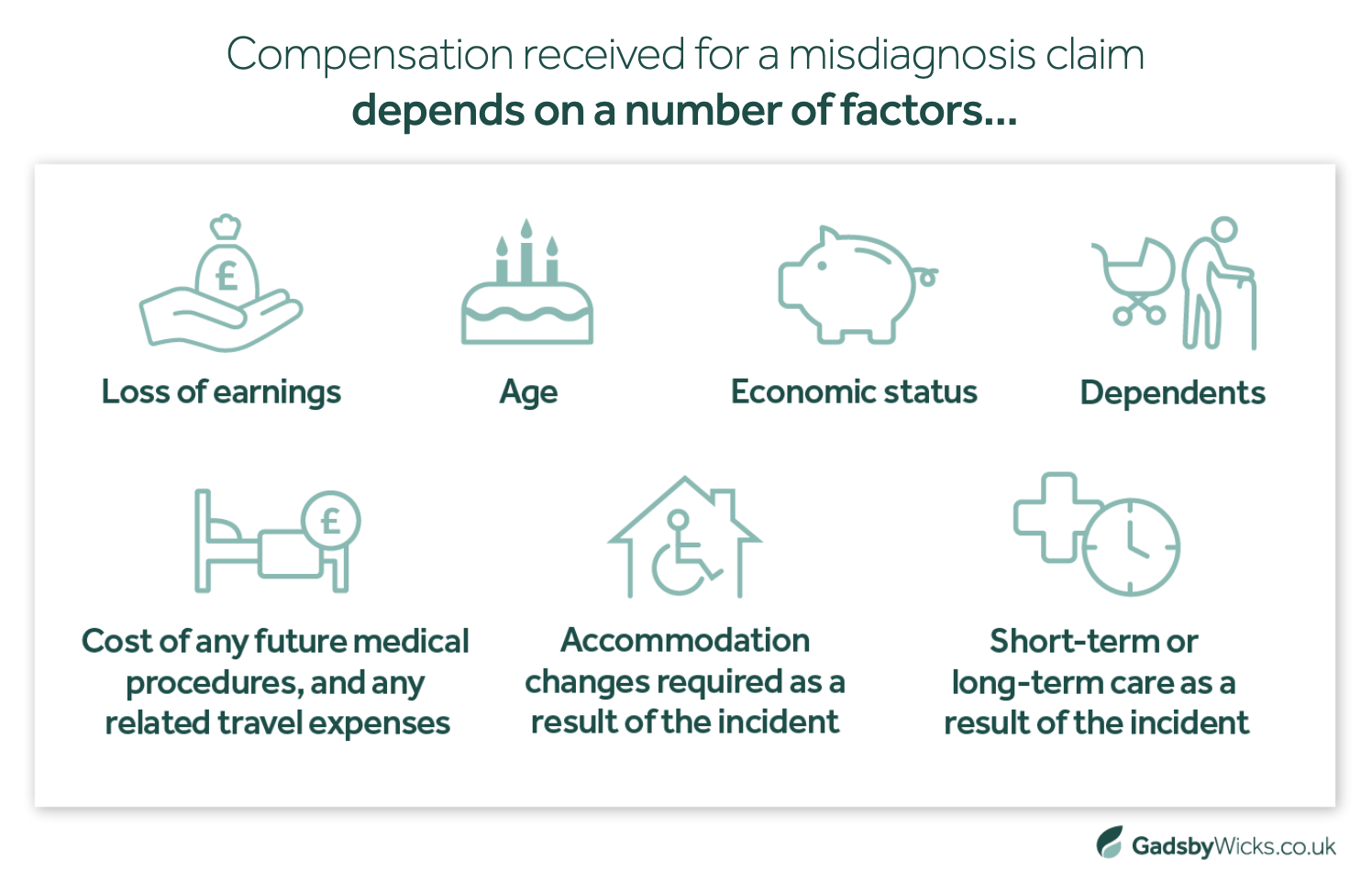
Special damages are heavily influenced by a person’s specific circumstances and long-term care needs, so this is often where the largest variations in misdiagnosis compensation are found.
For example, if a misdiagnosis led to a patient requiring a foot amputation, the special damages awarded would likely be greater if the person affected was an athlete or builder, as it may impact their ability to earn in the long term.
As specialist misdiagnosis solicitors in Essex, we work closely with medical experts, case managers and forensic accountants to evaluate the full financial impact of a misdiagnosis, ensuring that the special damages awarded genuinely reflect our clients’ individual needs.
What is the average misdiagnosis claim settlement in Essex?
People often ask us what the average value of a misdiagnosis settlement is. However, there is no “average” misdiagnosis claim settlement.
Every claim has unique factors, circumstances and repercussions – cases that appear similar on the surface can have greatly different outcomes, making an average value essentially irrelevant.
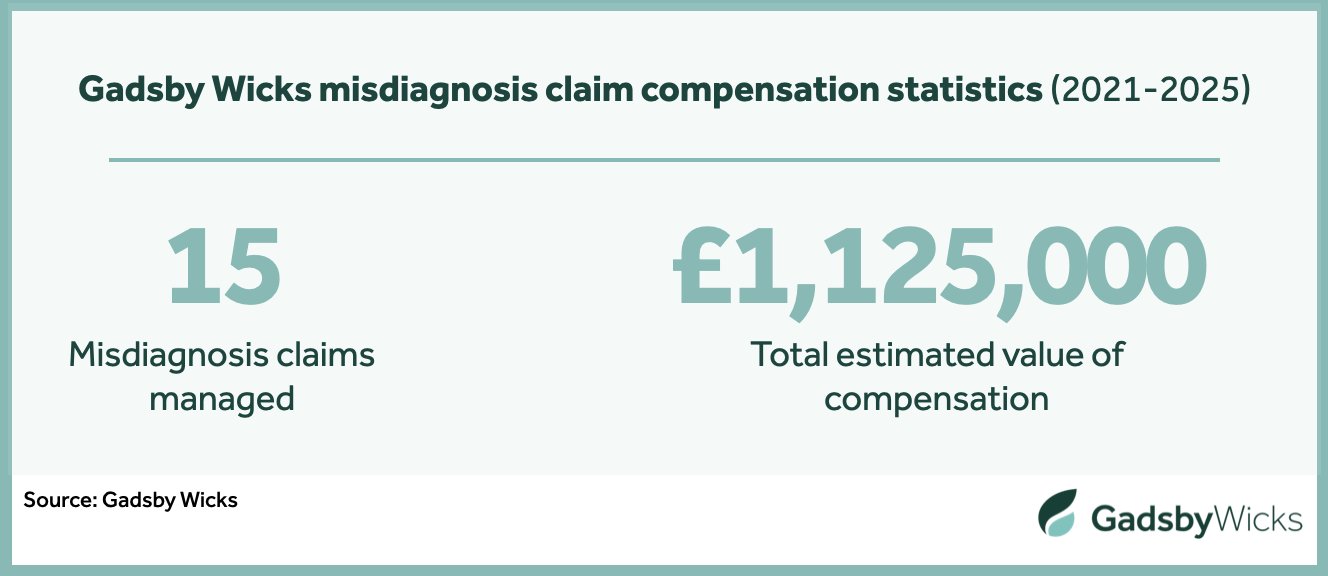
For example, our experienced solicitors have overseen breast cancer misdiagnosis claims ranging from £25,000 all the way up to £400,000 based on:
- The length of our client’s condition remained undiagnosed
- The treatment options available to our client
- The delay’s impact on their long-term health and life expectancy
- The impact on their lifestyle and loved ones’ circumstances
A true medical negligence specialist understands that no two misdiagnosis cases are the same. We take the time to recognise each client’s unique circumstances, ensuring every settlement provides the financial stability and support they need – both now and in years to come.
Should I use a misdiagnosis compensation calculator?
Several law firms offer online misdiagnosis compensation calculators that claim to give an instant estimate of what your case might be worth. However, these tools are often misleading.
Most online calculators are designed to generate enquiries rather than provide genuine legal advice.
With decades of experience handling misdiagnosis claims throughout Essex and East Anglia, we know that no claim can be accurately valued without first understanding the individual, reviewing their medical history, and examining the evidence available.
At Gadsby Wicks, we place honesty and accuracy at the heart of everything we do. Every client’s experience is unique, so we take the time to listen, assess the impact of your misdiagnosis, and give clear, realistic advice about the compensation you may be entitled to.
Examples of misdiagnosis claim compensation amounts
Here are a few examples of settlements we’ve secured for clients in misdiagnosis cases across Essex and East Anglia:
- £400,000 for a woman whose breast cancer was misdiagnosed multiple times across 18 months, causing it to become terminal
- £200,000 for a bowel cancer misdiagnosis that tragically reduced our client’s life expectancy by a significant amount
- £130,000 for a mother who lost her baby and received anti-coagulation therapy for 6 months due to delayed diagnosis of HELLP syndrome
- £60,000 for a gastric cancer misdiagnosis that delayed treatment for 18 months, meaning it was too late to treat
- £42,500 for delayed diagnosis and treatment of an eroded gastric band, causing our client long-term digestive and dental problems
Case studies for some of our misdiagnosis claim
What does our misdiagnosis claims process look like?

A free initial consultation
Call us, request a callback or complete our online form and we’ll assess if you have a valid medical negligence claim.

Funding your claim
Discover the ways we can fund your claim without you paying a penny at any stage of the process.

Investigating evidence
We gather medical records, witness statements and more to learn what happened to you and prove your claim.

Instructing independent medical experts
We work with impartial, experienced medical experts to establish whether your injuries were due to substandard medical care.

Valuing your claim
We assess your health and financial losses to accurately estimate how much compensation your claim is worth.

Presenting your case
We contact the Defendants and the Courts on your behalf to set out your allegations and receive a response.

Negotiating a settlement
We work to achieve a fair settlement for you outside the courtroom – this is how 96% of our cases end.

Preparing for Trial
If we must proceed to Trial, we fully prepare you for what to expect so you receive the right result in court.
FAQs about misdiagnosis claims
What is a medical misdiagnosis?
A medical misdiagnosis is when a healthcare professional makes an error in identifying a patient’s health condition, which can result in incorrect or delayed treatment, or cause harm.
Broadly speaking, a medical misdiagnosis falls into one of three categories:
- Incorrect diagnosis, where a doctor diagnoses their patient with the wrong condition
- Late diagnosis, when there is a delay in determining the patient’s condition, causing prolonged suffering
- Failed or missed diagnosis, where a doctor fails to diagnose a health condition altogether, despite their patient’s symptoms
Doctors, nurses and surgeons are expected to diagnose a wide range of conditions and diseases, and to recognise damage caused by accidents to organs and limbs. In addition, they must offer appropriate treatment to their patients or refer them to someone else who can.
Because the human body is complex, healthcare professionals will not get a diagnosis right every time, and the law does not expect them to, whether NHS or private.
However, it is expected that decisions made and steps taken to diagnose and treat patients should be ‘reasonable’, and comparable to how other doctors or health professionals would act in a similar situation.
How do I prove my misdiagnosis was due to medical negligence?
To prove your misdiagnosis was due to medical negligence, you must establish:
- Breach of duty: The healthcare professional who misdiagnosed you owed you a duty of care.
- Damages: The harm you experienced resulted in tangible damages, such as pain, injury or financial loss.
- Causation: The breach of duty must have directly caused the damages you sustained.
In misdiagnosis claims, we must also consider whether the misdiagnosis had a tangible impact on:
- Your ongoing health and wellbeing
- The treatment options available to you
- Your long-term prognosis
When we investigate a misdiagnosis case, we speak to relevant, impartial medical practitioners to clarify whether the actions or inactions of a healthcare professional were reasonable. If these experts determine that the professional breached their duty of care, this can lead to a misdiagnosis compensation claim.
It is important to clarify that ‘substandard’ care is not the same as ‘suboptimal’ care. For a healthcare professional to breach their duty of care, their actions or inactions must be something that no reasonable professional in their position would have done.
For example, if a condition is often misdiagnosed, a misdiagnosis may be considered reasonable.

Where do I start with a misdiagnosis claim?
To start your misdiagnosis claim, we recommend reaching out to an experienced, specialist medical negligence firm such as Gadsby Wicks.
Choosing a specialist solicitor ensures your claim receives the attention it deserves, increasing your chances of a fair, successful settlement, whether you are claiming against an NHS trust or a private practitioner.
At the start of your claim, we will work with you to establish what happened, and thoroughly investigate all available evidence, such as:
- Complaint correspondence
- Medical records
- Witness statements
- Photographs
- Independent medical opinion
- Financial evidence
We will speak with impartial medical experts with a good understanding of our legal tests to establish whether you have a strong case for a viable negligence claim, and determine how your circumstances have changed due to your misdiagnosis to calculate the right compensation.
With a reputation for being one of the best law firms to handle misdiagnosis cases, we will be with you at every stage of the claims process, and can provide our services on a ‘no win, no fee‘ basis. This means our payment is recovered from your compensation – if your claim is unsuccessful, you pay nothing.
If you would like to discover how we have supported clients in the past through their misdiagnosis claims and the outcomes we have achieved on their behalf, you can read a number of our case studies below:
How can medical misdiagnosis claim compensation help me?
Medical misdiagnosis compensation is designed to help you get back to where they were before your injuries or, if this is not possible, support changes to their life moving forward.
With this in mind, compensation following a misdiagnosis claim can cover a wide variety of costs, including:
- The cost of necessary treatments
- Loss of earnings incurred while undergoing and recovering from treatment
- Future financial losses due to being unable to work, or the need to change their employment
- Any necessary equipment or aids
- Therapies or support for any psychological harm caused by the experience
- Paying others for services that the claimant cannot perform themselves anymore (such as gardening and household chores)
- Any adaptations required to the home or vehicles
The value of a successful compensation claim will largely depend on the long-term ramifications of the misdiagnosis on the claimant’s life. For instance, if a person’s fractured foot is misdiagnosed and discovered two weeks later, this may well have a lower value than a misdiagnosis of breast cancer that continues for several months.
For instance, we achieved a settlement of £130,000 for a client who required anti-coagulation therapy for several months and must take heparin prophylaxis for any travel of more than 4 hours following delayed diagnosis of HELLP syndrome.
How long do misdiagnosis negligence claims take to settle?
In most cases, we expect a misdiagnosis claim to take between two and five years to reach a final settlement.
This will vary depending on the stance taken by the Defendants, and how long it takes medical experts to determine an accurate prognosis.
As highly experienced misdiagnosis claim solicitors with a long history of managing these types of claims, we will inform you early in your claim how long we anticipate it taking to reach a final settlement.
How long do I have to make a misdiagnosis compensation claim?
As is the case for all medical negligence claims, there is a set time limit of three years from when the injury is realised for someone to make a misdiagnosis claim.
There are some exceptions to this:
- Children have until their 21st birthday
- There is no time limit for anyone who is mentally incapacitated
- If the client dies during their claim, the three-year limit restarts from their date of death
Misdiagnoses can have serious consequences. In some cases, they may lead to conditions such as Brain Injury Claims, Cancer Claims (including Lung Cancer Claims or Skin Cancer Claims), Sepsis Claims, or Meningitis Claims if the early signs are missed.
In situations where someone isn’t aware they have been misdiagnosed until months or years later, the date of knowledge ensures the three-year time limit only begins when a claimant should have reasonably suspected they had been misdiagnosed – not when the misdiagnosis happened.
Furthermore, even if you have exceeded the three-year limit, we recommend contacting us for a free initial consultation if you believe you have a claim. Each claim is at the court’s discretion, and we have the experience and expertise to advise you on whether your misdiagnosis claim is viable.
Contact our expert misdiagnosis claims solicitors
If you or a loved one received the wrong diagnosis, and it affected your health, treatment options or prognosis – speak to someone about your options. Our team is here to listen and advise you on your next steps.

Lexcel accredited medical negligence claims solicitors
We are proud to be a Lexcel-accredited practice. The accreditation is a mark of quality and comes directly from the Law Society.
A recent assessment described us as a “Centre of Excellence” and we continue to operate to the highest standards across all main areas of our field. These include client care, case management, financial management, structure and strategy, people management, risk management, information management and file management.








